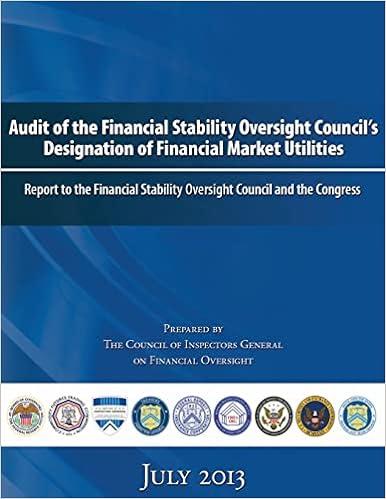Question
Corporate bonds have a secondary market, so investors who purchase them can sell them to other investors if they prefer not to hold them until
Corporate bonds have a secondary market, so investors who purchase them can sell them to other investors if they prefer not to hold them until maturity. The value of all corporate bonds in the secondary market exceeds $5 trillion. Bonds issued by large, well-known corporations in large volume are liquid because they attract a large number of buyers and sellers in the secondary market. Bonds issued by small corporations in small volume are less liquid because there may be few buyers (or no buyers) for those bonds in some periods. Thus, investors who wish to sell these bonds in the secondary market may have to accept a discounted price in order to attract buyers.
a.)What advantages and disadvantages come with trading in a secondary market?
b.)In your opinion, what are the most challenging issues related to investments in bonds?
c.)What primary bond characteristics affect the pricing and yields of bonds?
Step by Step Solution
There are 3 Steps involved in it
Step: 1

Get Instant Access to Expert-Tailored Solutions
See step-by-step solutions with expert insights and AI powered tools for academic success
Step: 2

Step: 3

Ace Your Homework with AI
Get the answers you need in no time with our AI-driven, step-by-step assistance
Get Started


